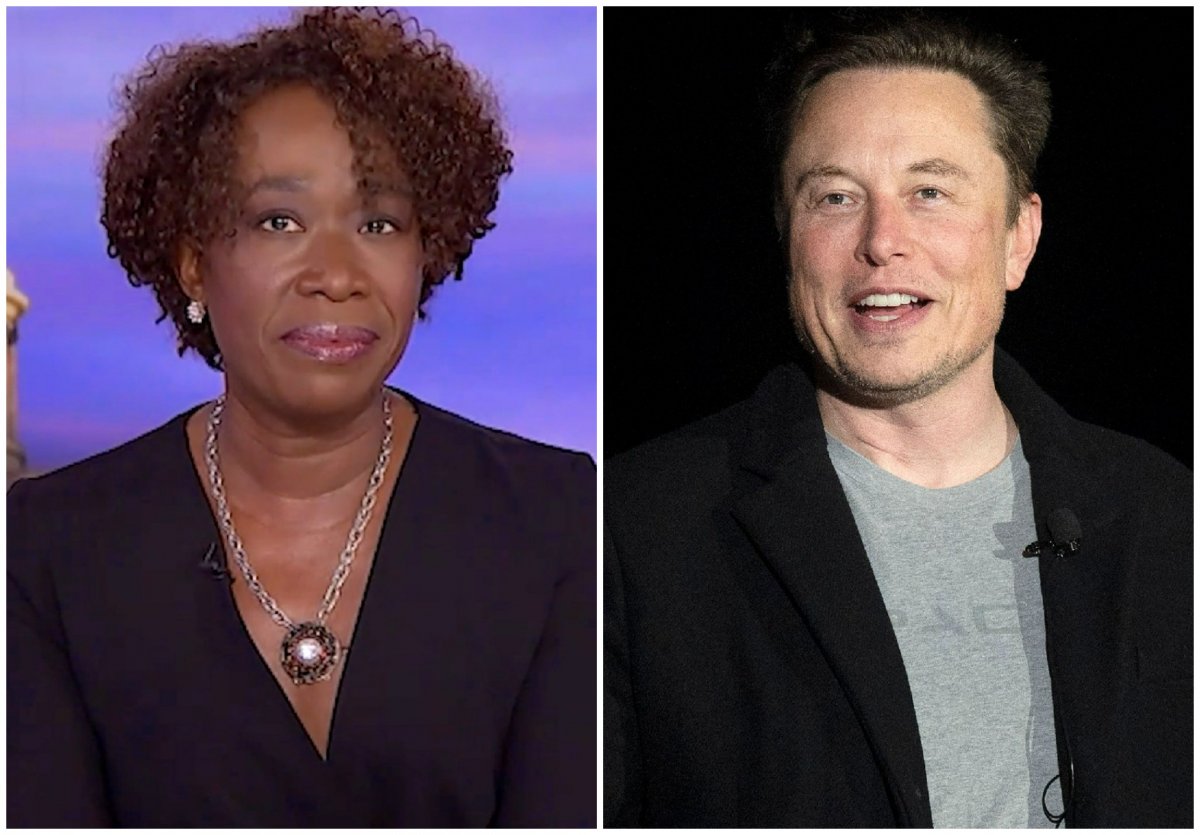MSNBC's Joy Reid criticized Elon Musk for purchasing Twitter during her Tuesday night show, and suggested he did so because he missed the South African Apartheid regime.
Reid argued that Musk's promotion of "free speech" on Twitter was born out of his desire to see a return to South Africa in the 1980s on the social media platform. Reid also said conservatives wanted to come into the Twitter "culture" and openly harass and attack people.
"It was distressing to a lot of people, not least ... to the people that work at Twitter," Reid said while discussing Musk's agreed purchase of Twitter for $44 billion.
"A lot of them, probably not all of them, are just worried about what becomes of their company. There has been this lawsuit against Tesla, and he himself is a troll.

"His idea of freedom means freedom to be a jerk and to be cruel and to have no one be able to stop you."
Political scientist Jason Johnson, who joined Reid on her show, said Musk's procurement of the popular social media platform was "concerning."
He also called for governments to get involved due to the cultural and political significance of social media platforms.
Reid continued to criticize Musk and warned him of more people leaving the platform due to his involvement in the company. She also commented on the perceived threat of conservatives wanting to dominate Twitter.
"They don't just want to be in the club. They have been described as being on the outside of the culture looking through the glass, but they don't just want to come in," Reid said.
"They want to come in and be at the table to punch people in the face and walk around and laugh about it and not have anyone be able to stop them.
"The enjoyment they get from being in this 'town square' is being able to harass people, being able to attack people.
"There was a time where people had the double hashtags around their names because they were Jewish and right-wingers were saying get in the oven anytime you made any benign comment on Twitter.
"They attacked women, the misogyny was crazy on Twitter for a while. Elon Musk, I guess he misses the old South Africa in the 80s, he wants that back."
Musk has said that he hopes to improve Twitter and has claimed the social media platform has great potential that can be realized with his help.
After it was confirmed he would be buying the platform, Musk tweeted the importance of free speech.
I hope that even my worst critics remain on Twitter, because that is what free speech means
— Elon Musk (@elonmusk) April 25, 2022
"I hope that even my worst critics remain on Twitter because that is what free speech means," Musk tweeted on Monday in response to those saying they would leave the platform if he owned it.
Musk also tweeted an image that highlighted some of his recent quotes on free speech, in relation to Twitter.
"Free speech is the bedrock of a functioning democracy, and Twitter is the digital town square where matters vital to the future of humanity are debated," the quote read.
🚀💫♥️ Yesss!!! ♥️💫🚀 pic.twitter.com/0T9HzUHuh6
— Elon Musk (@elonmusk) April 25, 2022
It continued: "I also want to make Twitter better by enhancing the product with new features, making the algorithms open source to increase trust, defeating the spam bots, and authenticating all humans.
"Twitter has tremendous potential, I look forward to working with the company and the community of users to unlock it."
In a tweet yesterday Musk also clarified what he means when he says free speech.
"By 'free speech,' I simply mean that which matches the law. I am against censorship that goes far beyond the law," he tweeted.
"If people want less free speech, they will ask government to pass laws to that effect. Therefore, going beyond the law is contrary to the will of the people."
Newsweek has contacted Elon Musk and Joy Reid for comment.
Musk was born and raised in South Africa in the late 1970s and early 1980s, briefly attending the University of Pretoria before moving to Canada at age 17.
Uncommon Knowledge
Newsweek is committed to challenging conventional wisdom and finding connections in the search for common ground.
Newsweek is committed to challenging conventional wisdom and finding connections in the search for common ground.
About the writer
Gerrard Kaonga is a Newsweek U.S. News Reporter and is based in London, U.K. His focus is reporting on U.S. ... Read more
To read how Newsweek uses AI as a newsroom tool, Click here.








